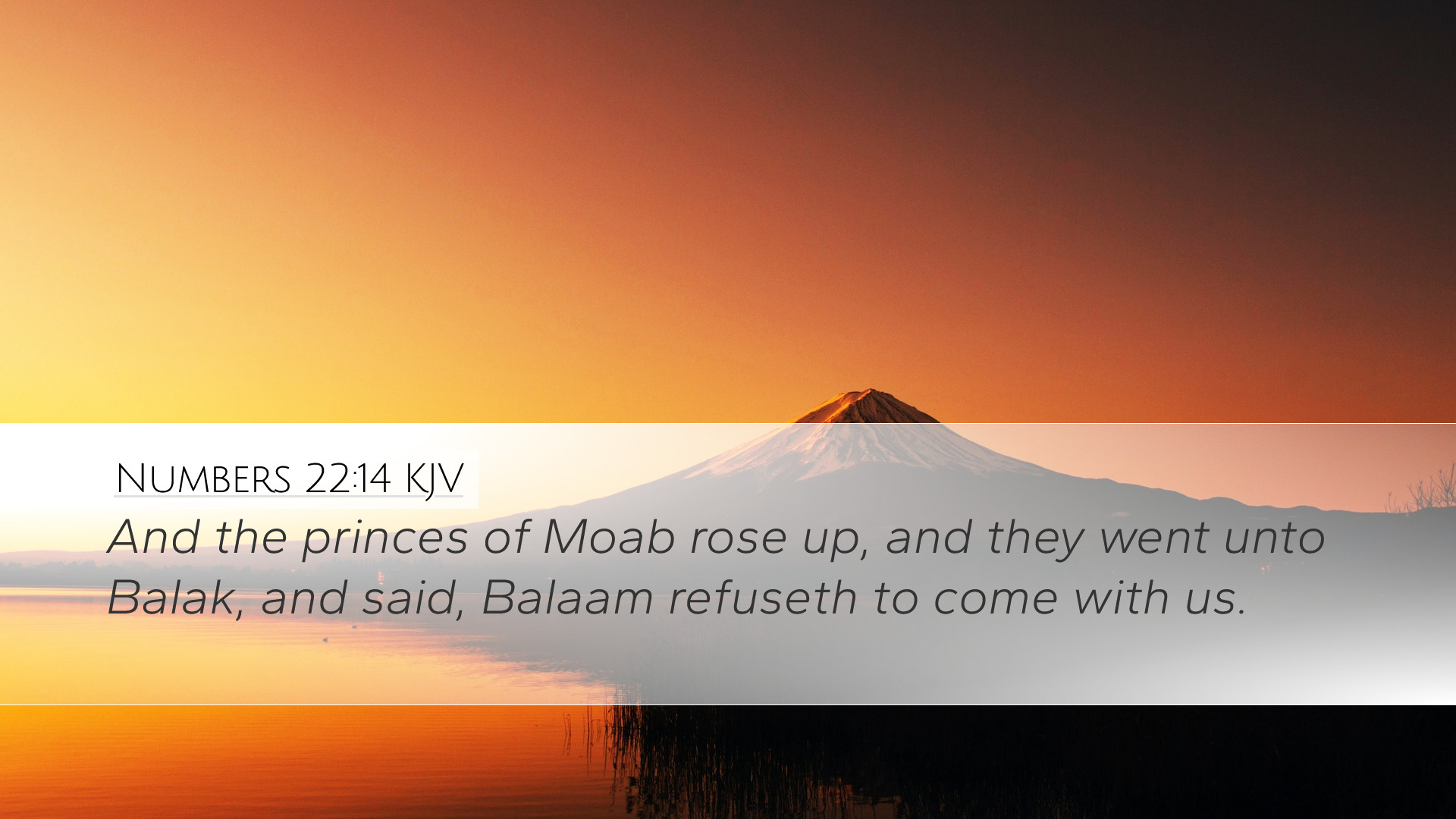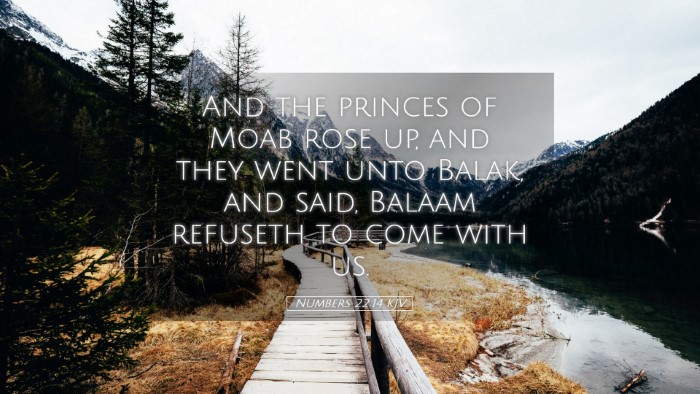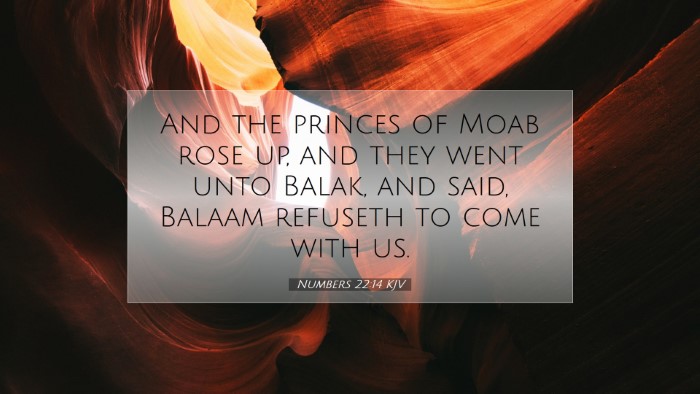Bible Commentary on Numbers 22:14
Verse: “And the princes of Moab rose up, and they went to Balaam, and said to him, Thus saith Balak the son of Zippor, Let nothing hinder thee from coming unto me.”
Contextual Analysis
This verse sits at a critical juncture in the narrative of Israel's journey through the wilderness. It introduces the interaction between Balak, the king of Moab, and Balaam, a seer whose powers were well-known throughout the region. The urgency expressed by Balak's princes suggests the high stakes of their predicament as Israel's presence poses a significant threat to Moab.
Commentary Insights
Matthew Henry’s Commentary
Matthew Henry highlights the role of Balaam as a figure who is consulted for his ability to discern spiritual matters. He notes Balak’s fear of the advancing Israelites, which should be understood within the greater context of God’s providence. Henry emphasizes that Balak, knowing well the power of God working on behalf of Israel, resorts to seeking curses from Balaam for protection.
Albert Barnes’ Notes
Barnes explores the motives behind Balak’s actions. He suggests that Balak perceives Balaam's services as vital to safeguard the interest of Moab. By communicating Balak’s command, the princes underscore Balaam's importance not just as a seer but as an instrument of potential divine intervention against perceived threats. Barnes also points to the concept of divine sovereignty, expressing that Balaam’s response would intertwine with God’s ultimate purpose.
Adam Clarke’s Commentary
Clarke provides a more nuanced interpretation of Balaam. He notes the political implications of the request and the expectations placed upon Balaam by the Moabite delegation. Clarke emphasizes Balaam’s ambiguous moral standing; although he is a man with divine insight, his motivations and actions will reveal a struggle between gain and godliness. This interplay sets the stage for moral lessons that resonate through scripture.
Theological Implications
This verse serves as a gateway to understanding the complex dynamics of prophecy, divine sovereignty, and human agency. It reflects on how leaders may turn to worldly wisdom when confronted with divine power. The gravity of Balak’s request illustrates a fundamental truth about human nature: the tendency to rely on perceived sources of spiritual help in times of crisis rather than trusting in God's plan.
Human Agency vs Divine Sovereignty
The response elicited from Balaam carries implications for understanding the balance between human choice and divine direction. The notion that a figure like Balaam could be used to either bless or curse draws attention to the accountability of those who claim to speak for God.
The Role of Prophecy
This narrative invites theological reflection on the nature of prophecy. The princes of Moab approach Balaam, underscoring that prophetic utterances have the power to influence outcomes. However, the text ultimately reveals that true prophecy submits to God's will, an essential lesson for both ministers and laypeople regarding the weight of words spoken in God’s name.
Practical Applications
- Understanding Influence: Leaders need to discern the sources of guidance they seek. Balaam’s story serves as a caution against aligning with deceptively positive influences that conflict with God’s will.
- Trusting God’s Plan: The urgency displayed by Balak invites believers to reflect on their own responses to divine challenges. Trust in God's sovereignty can provide peace in uncertain times.
- Moral Integrity in Leadership: The character of Balaam presents the tension between spiritual authority and personal desire. Current leaders must strive for integrity, not allowing personal gain to dictate their counsel.
Conclusion
Numbers 22:14 raises profound questions about the relationship between divine communication and human response. As seen in the interplay between Balak and Balaam, the narrative illustrates the intricate dance of faith, authority, and moral responsibility. It encourages a reflective and discerning approach to spiritual leadership, emphasizing that genuine ministry must always align with God’s will and purpose.


